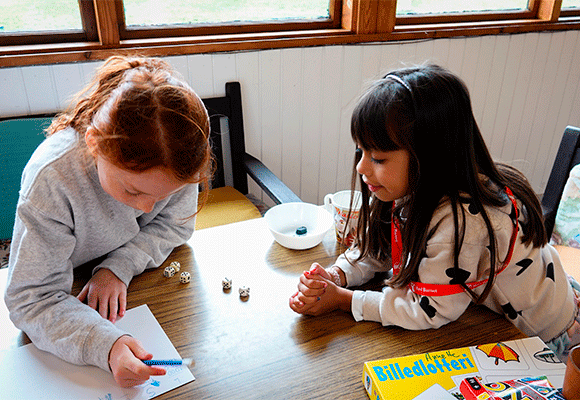
Did you hear what I said? Panel discussion on listening to children in welfare state institutions
When talking to children, adult professionals can have a tendency to only hear what confirms their preconceptions. The Children's Act, which came into force on 1 January 2024, focuses on children being heard and involved, but how do you listen properly - in practice? This is up for debate at the Nordic Humanities Center.
A 10-year-old girl wants to change the 7-7 arrangement where she lives equally with both parents. Friends and leisure activities are close to the father's home, whereas the mother has moved far away from the girl's base of friends. This makes everyday life very difficult for her, and she talks to a caseworker about it, but nothing changes.
- The girl gets the impression that the adults are not listening. She may have only been able to express her wishes in an aside, but it's a good example of how listening carefully and including the child's perspective is not at all straightforward," says Sarah Alminde, who is a postdoc in social science and has researched child involvement in family law cases. The example is real and comes from the research project she is currently working on.
Panel discussion: How do we listen to children and young people in their encounter with the welfare state
Registration not required

Not there yet
Sarah Alminde will participate in the panel debate hosted by the Nordic Humanities Center on 3 September in collaboration with Red Barnet. History professor Karen Vallgårda, who specialises in the history of emotion and childhood, is moderating the event.
In 2021, Karen Vallgårda also published the book "Skilsmisser", which looks at divorce in Denmark from the mid-1800s to the present day.
- Over the years, have we become better at listening to and involving children when it comes to changing everyday life after a divorce?
- There is no doubt that we as a society listen more to children today than we did 100 years ago. Children have a different status in families and society today. But there are many indications that we still have a long way to go before we achieve real child and youth involvement across the welfare state," says Karen Vallgårda.
”- There are many indications that we still have a long way to go before we achieve real child and youth involvement across the welfare state
Don't understand what they have influence over
And children actually want to be involved. A study conducted this year by VIVE, the Danish Center for Social Science Research and Analysis, shows that most children want to attend child interviews at the Family Courts, but it also shows that three out of ten children find it difficult to understand what they can influence and what is passed on.- The Nordic countries like to pride themselves on being child-friendly. In some respects, this is undoubtedly true. But the experience that many children and young people have of not being adequately heard, both in the family law system and elsewhere in the welfare state, is a democratic problem. At the same time, both the UN Convention on the Rights of the Child and the Children's Act emphasise that children have the right to be involved in matters that affect them. I hope and believe that things are moving in the right direction - hopefully the debate can help shed light on both problems and possible solutions," says Karen Vallgårda.
Backing up agreements
About one in three children in Denmark experience that their parents go their separate ways, which is why Sarah Alminde believes that we would be wise to become better at basing decisions on the children's experiences and wishes for the situation.”- They have a special knowledge of what it means to be them, so there is a risk that poorer decisions will be made if their perspective is not included.
- They have a special knowledge of what it means to be them, so there is a risk that poorer decisions will be made if their perspective is not included. On the other hand, there is the prospect that children will want to support agreements that they have taken an active part in shaping," she says.
The same perspective also applies when it comes to involving children who, for mental or physical reasons, need special arrangements with schools, for example.
Also taking part in the panel debate are Caroline Helene Hermansen, Chair, Danish School Students, Johan Burgess, activist for children and young people with neurodiversity and Annemette Krabbe, Head of Combating Neglect at Red Barnet.